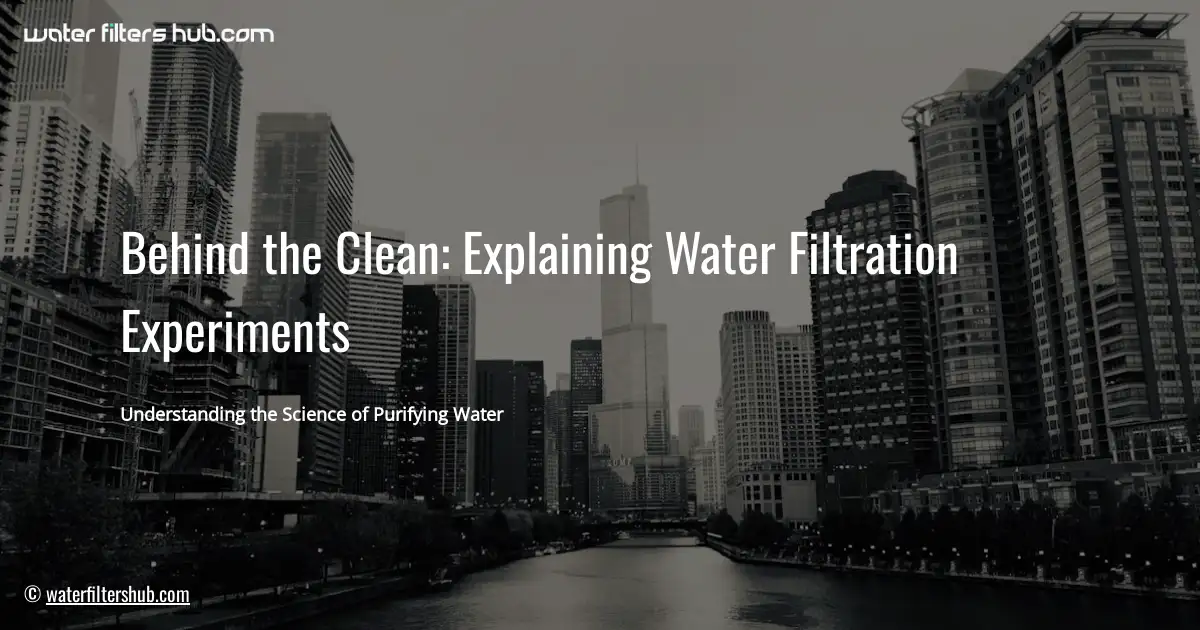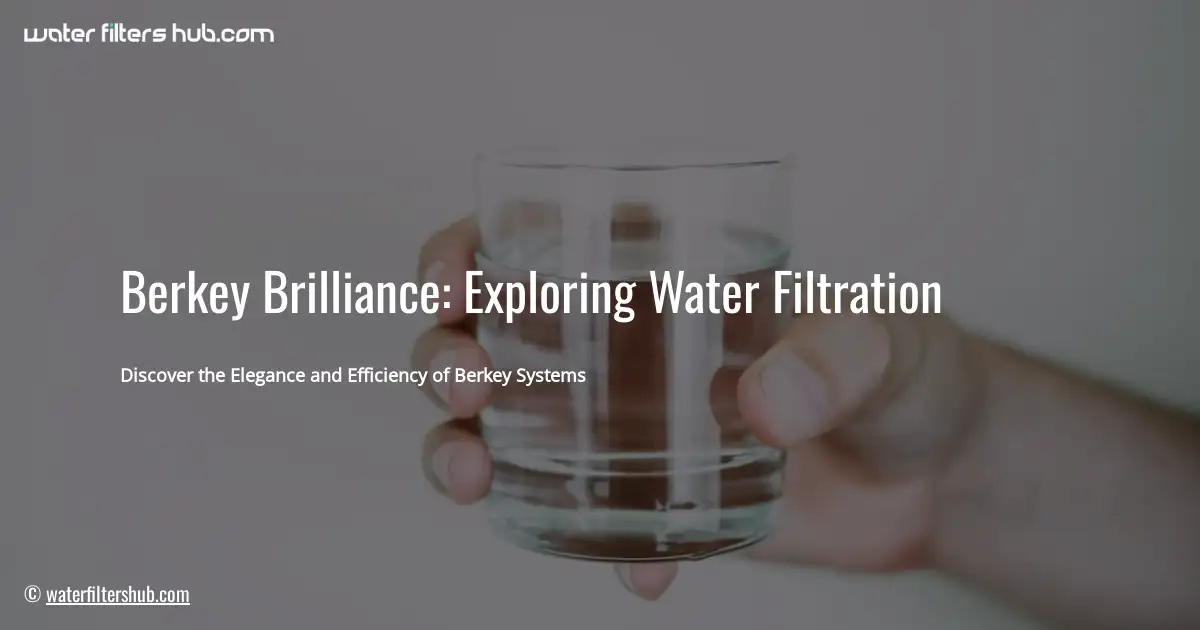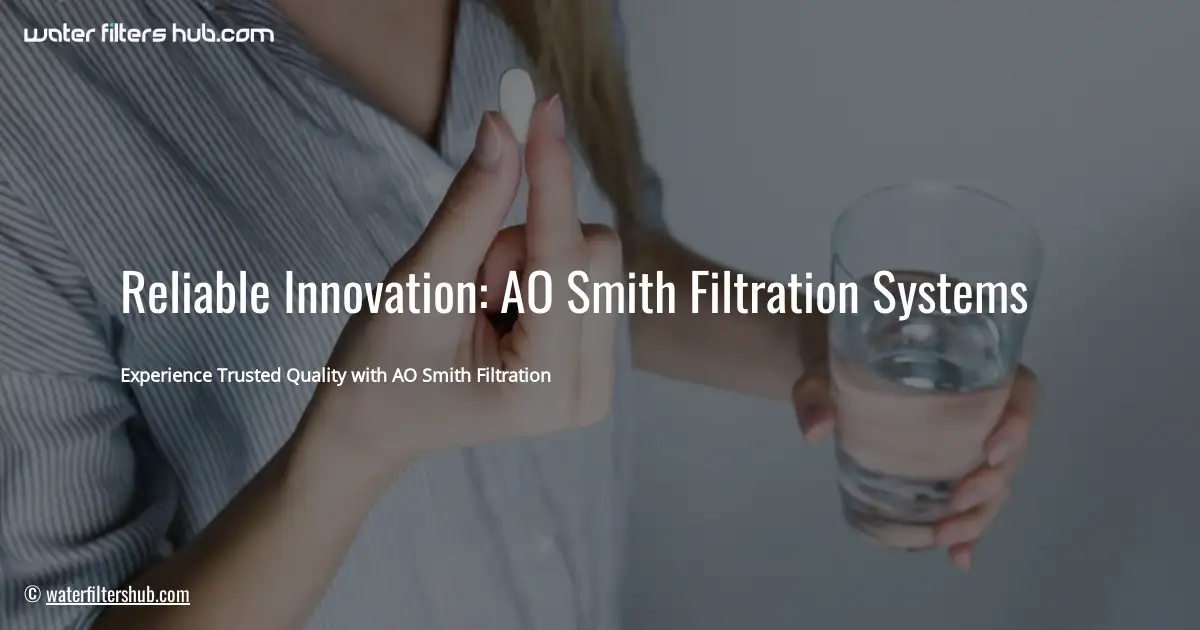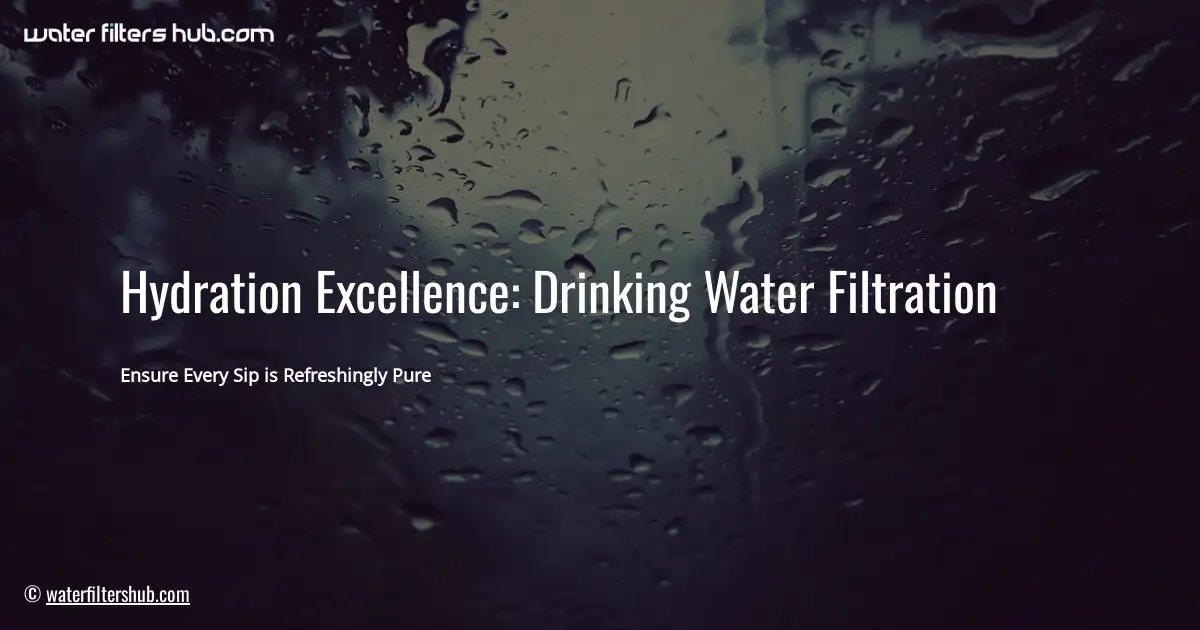A Comprehensive Guide to Understanding Water Filtration
“Water is the elixir of life,” as the saying goes, and it’s true! Water makes up over 60% of our bodies, and it’s essential for every bodily function. But not all water is created equal. Some water sources may contain harmful contaminants, such as bacteria, viruses, and heavy metals. That’s where water filters come in. They act as the guardians of our water supply, removing these unwanted guests and ensuring that we have access to clean and safe water.
Water filters are like the superheroes of the water world, protecting us from the dangers that lurk within. They’re like the knights in shining armor, standing guard at the gate, ready to battle any contaminant that dares to enter our water supply. With a water filter on our side, we can rest assured that our water is pure and pristine, giving us the peace of mind that we’re drinking the best possible water for our health and well-being.
How Water Filters Work
Filtration Mechanisms
Water filters employ various mechanisms to remove impurities from water. These mechanisms include:
- Adsorption: Contaminants cling to the surface of a filter media, such as activated carbon, like magnets attracting metal.
- Ion Exchange: Ions in the water are swapped with harmless ions on the filter media, like a friendly game of musical chairs for atoms.
- Mechanical Filtration: Physical barriers, like tiny sieves, trap particles and microorganisms, preventing them from passing through.
These mechanisms work together to create a barrier that purifies water, ensuring that only clean and safe water reaches our taps. It’s like having a superhero team protecting our water from evil contaminants! 🦸
TYPES OF WATER FILTERS
Ceramic filters are made from a porous ceramic material that traps contaminants as water passes through it. They are effective at removing bacteria, protozoa, and other large particles. Ceramic filters are often used in portable water filters and are a good option for people who live in areas with contaminated water.
Ceramic filters are relatively inexpensive and easy to maintain. They can be cleaned by simply rinsing them with water. However, ceramic filters can be fragile and can break if they are dropped or mishandled.
| Pros of Ceramic Filters | Cons of Ceramic Filters |
|---|---|
| Effective at removing bacteria, protozoa, and other large particles | Can be fragile and can break if dropped or mishandled |
| Inexpensive and easy to maintain | Not as effective at removing smaller contaminants, such as chemicals and heavy metals |
| Can be used in portable water filters | Can clog easily if the water is very dirty |
Benefits of Using Water Filters:
Water filters are like the superheroes of our water supply, protecting us from sneaky contaminants that can wreak havoc on our health and taste buds. They’re like the bouncers at a VIP party, only they’re keeping out uninvited guests like chlorine, bacteria, and heavy metals.
One of the biggest perks of using a water filter is the improved taste and odor. Imagine sipping on water that’s as refreshing as a mountain stream, without the earthy aftertaste. Filters remove those pesky chemicals and impurities that leave a sour note in our mouths.
But it’s not just about taste. Water filters also have our health in mind. By removing harmful contaminants, they help reduce our risk of waterborne illnesses and long-term health problems. It’s like giving our bodies a daily dose of protection, keeping us hydrated and healthy.
Choosing the Right Water Filter
Selecting the optimal water filter hinges on comprehending your unique water quality and usage patterns. Here’s a quick guide to help you navigate the diverse range of filters available:
-
Activated Carbon Filters: Like a sponge for impurities, activated carbon filters absorb contaminants, improving taste and odor. They’re ideal for removing chlorine, pesticides, and certain organic compounds.
-
Reverse Osmosis Filters: The gold standard of filtration, reverse osmosis filters utilize a semipermeable membrane to remove virtually all impurities, including heavy metals, bacteria, and viruses. However, they require more maintenance and can waste water.
-
Ultraviolet (UV) Filters: UV filters employ ultraviolet light to destroy microorganisms like bacteria and viruses. They’re particularly effective for well water or water sources with high microbial content.
-
Ceramic Filters: Made from porous ceramic, these filters physically trap contaminants. They’re durable and can last for years, making them a cost-effective option for removing sediment, bacteria, and protozoa.
HOW WATER FILTERS ON YOUTUBE
Just like your car needs regular oil changes, your water filter needs some TLC too! Here are some telltale signs that it’s time to give it a refresh:
- Reduced Water Flow: If your water’s taking a leisurely stroll instead of a brisk flow, it could be a sign of a clogged filter.
- Filter Clogging: If you notice a buildup of sediment or debris on the filter, it’s definitely time for a replacement.
- Water Leaks: A leaky filter is like a leaky faucet – a waste of water and a potential hazard.
- Bad Taste or Odor: If your water starts tasting or smelling funky, it could be a sign of bacteria buildup in the filter.
- Discolored Water: If your water’s looking a little off-color, it could be a sign of filter wear and tear.
Troubleshooting Common Problems
“Leaks are like unwanted guests at a party, they can ruin the whole experience.” Water leaks from a water filter can be a real headache, but don’t worry, we’ve got you covered!
- Check the connections: Make sure all the connections between the filter and your plumbing are tight and secure. A loose connection can allow water to escape.
- Inspect the filter housing: Look for any cracks or damage to the filter housing. If there’s any damage, it’s time for a new filter.
- Replace the O-rings: Over time, the O-rings that seal the connections can wear out and cause leaks. Replacing them is a quick and easy fix.
- Call a plumber: If you’ve tried all the above and still have a leak, it’s time to call in the professionals. A plumber can diagnose and fix the problem quickly.
Advanced Water Filtration Technologies
Nanofiltration (NF) is a cutting-edge water filtration technology that utilizes a semipermeable membrane with pores smaller than those in reverse osmosis (RO) systems. 💧 It effectively removes dissolved salts, organic matter, and bacteria while allowing beneficial minerals to pass through. NF is particularly suitable for treating brackish water or water with high salt content.
Imagine a molecular sieve that sorts molecules based on size. NF’s tiny pores act like this sieve, allowing smaller molecules like water and minerals to slip through while blocking larger contaminants. This process results in water that is purified but still retains its natural mineral balance.
Water Filter Certification and Standards
Water filter certification is crucial for ensuring the safety and effectiveness of your water filtration system. Certified filters have undergone rigorous testing by independent organizations to verify their ability to remove specific contaminants. This certification provides peace of mind that your water filter is performing as intended.

Major Water Filter Standards
Several major water filter standards exist, including:
- NSF (National Science Foundation): NSF certifies water filters based on their ability to remove specific contaminants, such as chlorine, lead, and cysts.
- WQA (Water Quality Association): WQA certifies water filters that meet specific performance standards, including flow rate, capacity, and contaminant reduction.
- ANSI (American National Standards Institute): ANSI sets standards for water filter testing and performance.
By choosing a water filter certified by a reputable organization, you can be confident that it has been tested and proven to meet the highest standards of safety and effectiveness.
Conclusion
Water filters are indispensable tools for safeguarding our health and well-being. They act as vigilant guardians, tirelessly removing impurities from our water, ensuring its purity and safety. Just as a doctor protects our physical health, a water filter protects our internal environment, preventing harmful contaminants from wreaking havoc on our bodies.
By investing in a water filter, we are making a conscious choice to prioritize our health and the health of our loved ones. It’s like giving our bodies a daily dose of protection, ensuring that every sip of water we take is a step towards a healthier future. Let’s embrace the transformative power of water filters and make clean, safe water an integral part of our lives.
CHOOSING HOME WATER FILTERS & OTHER WATER TREATMENT SYSTEMS | CDC
CHOOSING HOME WATER FILTERS & OTHER WATER TREATMENT SYSTEMS | CDC
HOW TO CLEAN BERKEY WATER FILTERS
HOW TO INSTALL WATER FILTER CARTRIDGE
WHAT WATER FILTERS ARE BETTER THAN BRITA
HOW LONG DO WATER FILTERS LAST
WHAT WATER FILTERS CAN REMOVE PFAS







Leave a Reply